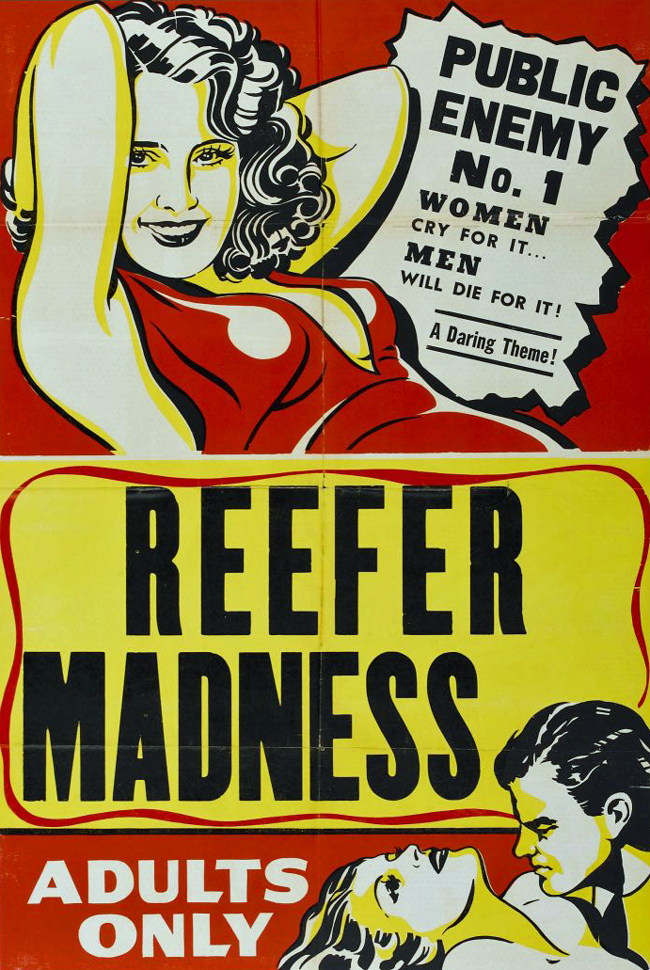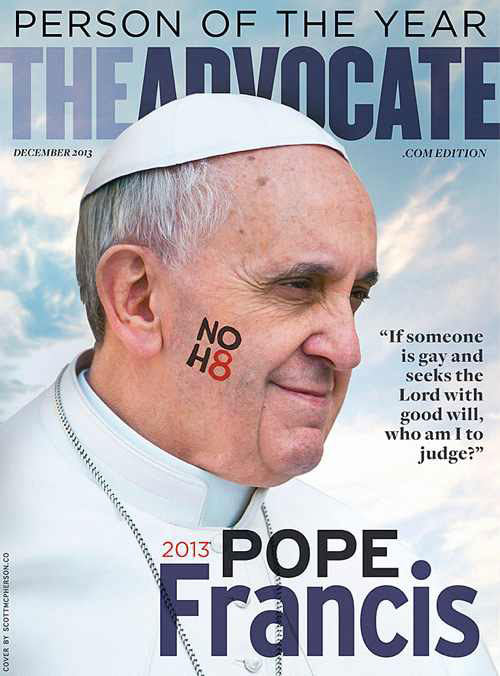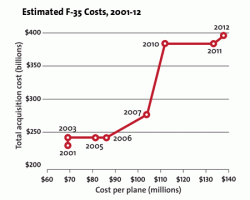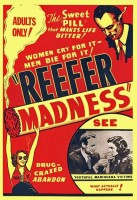
Today’s Live Wire: Quick Links
- A Pope Gays and Lesbians Can Love
- Mayor Bloomberg Blames Homelessness on God
- Florida: The Most Dangerous State for the Homeless
- The F-35, Biggest Pentagon Rip-Off of All Times
- Challenging Saudi Arabia’s Regressions
- Morgan Freeman Recites Mandela’s Favorite: “Invictus”
- Iceland’s Vanishing Ice
- Getting the UN To Recognize German Beer
- Facebook Goes Commercial
- A Little Reefer Madness
![]()
A Pope Gays and Lesbians Can Love

See Also:
- Pope Francis’s Sexual Revolution
- Argentina’s Jorge Mario Bergoglio is Francis I, Church’s First Non-European Pope, Post-Columbus
- Florida GOP Rallies Around Marriage Inequality as LGBT Community Mobilizes
Mayor Bloomberg Blames Homelessness on God

See Also:
- The New York Times Series on Dasani
- Beyond Controversy: A Video Profile of The Sheltering Tree, Flagler’s Cold-Weather Shelter
- Homelessness in Flagler Persists, But Minor Conflicts Cloud Accomplishments and Services
- A Bench, a Homeless Man, A Cop’s Brutal Judgment: Poverty as a Presumption of Guilt
Florida: The Most Dangerous State for the Homeless
From Nationalhomeless.org: “The National Coalition for the Homeless has been tracking hate crimes against homeless individuals since 1999. This year’s report only shows a slight improvement in the number of lethal attacks. In 2012 alone, of the 88 attacks, 18 resulted in deaths. A majority of the perpetrators this past year were young men under 30, and the victims were primarily males over the age of 40. Some of the most horrific cases include a serial killer targeting the homeless population of southern California because he viewed it as a public service, teens killing a homeless man over one dollar, and a homeless woman set on fire who suffered second and third-degree burns over 20% of her body. “This violence is prompted by a profound lack of empathy for fellow human beings, the same moral failure that allows our society to tolerate the larger tragedy of homelessness,” said Jerry Jones, Executive Director of the National Coalition for the Homeless. “Homeless people deserve our help and protection. These attacks are a shocking failure in our society’s obligations toward the most vulnerable among us.” From Huffington Post: “Florida had more than double the number of hate crimes against the homeless in 2012 (15) as the runner-up, California (7), according to the report. Three of country’s 18 fatal events occurred in Florida, including the running over of a 73-year-old in Tampa, the murder of a 43-year-old in Deerfield Beach by a suspect who wanted to kill a stranger, and the strangulation of a 40-year-old homeless man by two Hallandale Beach boys, ages 14 and 17, who had asked him to secure a prostitute. “This violence is prompted by a profound lack of empathy for fellow human beings, the same moral failure that allows our society to tolerate the larger tragedy of homelessness,” Jerry Jones, NCH’s executive director, said in a statement. “Homeless people deserve our help and protection. These attacks are a shocking failure in our society’s obligations toward the most vulnerable among us.” The database even includes cases of “multi-media exploitation,” as in the case against Real Housewives star Alexia Echevarria’s son Peter Rosello. Rosello, 25, was arrested after filming himself approaching a sleeping homeless man in Miami Beach, taunting him, and punching him in the genitals before running away. In another Florida case, a Miami man was panhandling at an intersection when he was beckoned to a truck and stabbed in the neck in what police called a random act of violence.”
The Full Report:
Hate Crimes Against the Homeless, 2012
See Also:
- Calvary Christian’s Bus Ministry: Treasuring the Homeless, One Sunday at a Time
- Predatory Human Traffickers Luring Teens and the Homeless as Cops Warn of Backyard Crisis
- A Night at the Homeless Shelter: From the Eyes of a Volunteer
The F-35, Biggest Pentagon Rip-Off of All Times
 From Mother Jones: “The passage of the Ryan-Murray budget plan in the House sends a strong signal that the Pentagon’s budget is basically untouchable. Under the deal, the military’s base budget (which doesn’t include supplemental funding for overseas operations and combat) will be restored to around $520 billion next year—more than it got in 2006 and 2007, when the United States was fighting in both Iraq and Afghanistan. As Erika Eichelberger reports, the deal could spell the end of efforts to make the Pentagon budget more efficient, particularly in the realm of procurement and contracting. Exhibit A is the F-35 Joint Strike Fighter, the stealthy, high-tech fighter jets that are supposed to do everything from landing on aircraft carriers and taking off vertically to dogfighting and dropping bombs. Faced with sequestration cuts, the Air Force had considered delaying its purchases of the fighters, which are years behind schedule, hugely over budget, and plagued with problems. If the House budget plan becomes law and sequestration is eased for two years, those plans also may be shelved. Rolling out the F-35 originally was expected to cost $233 billion, but now it’s expected to cost nearly $400 billion. The time needed to develop the plane has gone from 10 years to 18. Lockheed says the final cost per plane will be about $75 million. However, according to the Government Accountability Office, the actual cost has jumped to $137 million.” The full story.
From Mother Jones: “The passage of the Ryan-Murray budget plan in the House sends a strong signal that the Pentagon’s budget is basically untouchable. Under the deal, the military’s base budget (which doesn’t include supplemental funding for overseas operations and combat) will be restored to around $520 billion next year—more than it got in 2006 and 2007, when the United States was fighting in both Iraq and Afghanistan. As Erika Eichelberger reports, the deal could spell the end of efforts to make the Pentagon budget more efficient, particularly in the realm of procurement and contracting. Exhibit A is the F-35 Joint Strike Fighter, the stealthy, high-tech fighter jets that are supposed to do everything from landing on aircraft carriers and taking off vertically to dogfighting and dropping bombs. Faced with sequestration cuts, the Air Force had considered delaying its purchases of the fighters, which are years behind schedule, hugely over budget, and plagued with problems. If the House budget plan becomes law and sequestration is eased for two years, those plans also may be shelved. Rolling out the F-35 originally was expected to cost $233 billion, but now it’s expected to cost nearly $400 billion. The time needed to develop the plane has gone from 10 years to 18. Lockheed says the final cost per plane will be about $75 million. However, according to the Government Accountability Office, the actual cost has jumped to $137 million.” The full story.
See Also:
- Pentagon: Can’t Touch This
- My Favorite Republican: A Look Back at Eisenhower’s Otherworldly Farewell Address
Challenging Saudi Arabia’s Regressions
From Human Rights Watch: ” Activists in Saudi Arabia face a repressive and intolerant government as they advocate popular political participation, judicial reform, and an end to discrimination against women and minorities, Human Rights Watch said in a report released today. Authorities have responded by arresting, prosecuting, and attempting to silence rights defenders and to quash their calls for change. The 48-page report, “Challenging the Red Lines: Stories of Rights Activists in Saudi Arabia,” presents the stories of 11 prominent Saudi social and political rights activists and their struggles to resist government efforts to suppress them. The activists have used new media, including news websites and blogs, and social media tools such as Twitter and Facebook, to build relationships with one another, discuss ideas and strategies for change, and develop public platforms to disseminate their reform message. “Saudi activists are using new media to take their government to task for rampant rights abuses,” said Joe Stork, deputy Middle East director at Human Rights Watch. “The Saudi authorities think they can use intimidation and prison terms to stop the criticism, but the activists are finding ways to voice their concerns until they are heard.” Several activists have used social media and online forums to build networks and initiate digital campaigns. Tens of thousands of Saudi citizens have already participated in online campaigns, including the “Women2Drive” initiative, which encourages Saudi women to drive in defiance of the government ban. A number of recently established, mostly Internet-based nongovernmental human rights organizations regularly issue statements on individual cases of human rights abuses. Despite the authorities’ efforts to block online content, Saudis – at least 49 percent of whom have Internet access – use Internet forums to bypass heavily censored state media.” The full story. The full report.
See Also:
- Challenging The Red Lines
- No Woman No Drive
- Bipolar Obamocracy: Bombing Libya While Invading Bahrain
Morgan Freeman Recites Mandela’s Favorite: “Invictus”
From Open Culture: ” In an interview with Charlie Rose, [below], Morgan Freeman discusses Mandela’s reliance on William Ernest Henley’s 1875 poem, “Invictus,” to keep his hope alive: “That poem was his favorite… When he lost courage, when he felt like just giving up — just lie down and not get up again — he would recite it. And it would give him what he needed to keep going.” Freeman, who played Mandela in the 2009 film Invictus, also provides a solemn and dignified recitation of the poem beginning at 3:51. Although the poem is best known for providing succour to Mandela in times of despair, its words of courage have served as inspiration to countless others. Famous figures who have drawn hope from “Invictus” include the father of Burmese opposition leader Aung San Suu Kyi during his struggle for Burmese independence and tennis champion Andre Agassi. Rumor has it that U.S. President Franklin D. Roosevelt was also quite fond of it.
See Also:
- Nelson Mandela, 1918-2013: Forgive, But Don’t Forget
- James Earl Jones Does Othello
- William Stafford: Traveling Through the Dark (1962)
 From The Daily Climate: “Iceland, lying just below the Arctic Circle, is one of the fastest-warming places on the planet – as much a four times the Northern Hemisphere average. The 300-some glaciers that cover more than 10 percent of the island are losing an average of 11 billion tons of ice a year. The annual volume carried away from Iceland’s glaciers and not replaced by new snow would fill 50 of the world’s largest trucks every minute for the entire year. […] Subject of ancient myth, a proud literary tradition and a lucrative tourist draw, Iceland’s majestic white mountains – jökull in Icelandic – are crucial to the nation today. Glacial rivers generate hydropower that provides most of the country’s electricity. Glacier ice stores water for its 320,000 residents. […] Some of the country’s glaciers have vanished already and several others will be gone within a decade or two, said Bjornsson, one of the leading scientists to quantify the link between glacial loss and greenhouse gas-induced warming. A generation from now there may not be enough water to drive turbines or slake a nation’s thirst. Dust storms will swirl over dry glacier beds while huge expanses of exposed earth erode. Without glaciers, one resident quipped, Iceland is “just land.” […] The land of fire and ice has become a growing tourist destination in recent years, with more than two-thirds of a million international visitors in 2012, according to the Icelandic Tourist Board. Lured by its glacial beauty and recreational opportunities, tourists spent a record 238 billion Icelandic kronur (about $2 billion U.S.) here last year, putting the industry second to fishing as the island’s biggest foreign money-maker. But the warming climate’s assault is already evident at some popular attractions, such as Solheimajokull, where two would-be ice climbers from Germany stared dejectedly at the wind-swept dirt on that howling autumn day, then trudged back to their van and drove away. Not all Icelanders see their country’s shrinking glaciers as a bad thing. Glaciers historically posed a looming threat to nearby cities and farms, which lost land to advancing ice and were occasionally destroyed by sudden glacial outbursts called jokulhlaups, said University of Iceland engineer Finnur Palsson, a frequent collaborator on Bjornsson’s research. As glaciers recede, he said, the danger from jokulhlaups may lessen.” The full story.
From The Daily Climate: “Iceland, lying just below the Arctic Circle, is one of the fastest-warming places on the planet – as much a four times the Northern Hemisphere average. The 300-some glaciers that cover more than 10 percent of the island are losing an average of 11 billion tons of ice a year. The annual volume carried away from Iceland’s glaciers and not replaced by new snow would fill 50 of the world’s largest trucks every minute for the entire year. […] Subject of ancient myth, a proud literary tradition and a lucrative tourist draw, Iceland’s majestic white mountains – jökull in Icelandic – are crucial to the nation today. Glacial rivers generate hydropower that provides most of the country’s electricity. Glacier ice stores water for its 320,000 residents. […] Some of the country’s glaciers have vanished already and several others will be gone within a decade or two, said Bjornsson, one of the leading scientists to quantify the link between glacial loss and greenhouse gas-induced warming. A generation from now there may not be enough water to drive turbines or slake a nation’s thirst. Dust storms will swirl over dry glacier beds while huge expanses of exposed earth erode. Without glaciers, one resident quipped, Iceland is “just land.” […] The land of fire and ice has become a growing tourist destination in recent years, with more than two-thirds of a million international visitors in 2012, according to the Icelandic Tourist Board. Lured by its glacial beauty and recreational opportunities, tourists spent a record 238 billion Icelandic kronur (about $2 billion U.S.) here last year, putting the industry second to fishing as the island’s biggest foreign money-maker. But the warming climate’s assault is already evident at some popular attractions, such as Solheimajokull, where two would-be ice climbers from Germany stared dejectedly at the wind-swept dirt on that howling autumn day, then trudged back to their van and drove away. Not all Icelanders see their country’s shrinking glaciers as a bad thing. Glaciers historically posed a looming threat to nearby cities and farms, which lost land to advancing ice and were occasionally destroyed by sudden glacial outbursts called jokulhlaups, said University of Iceland engineer Finnur Palsson, a frequent collaborator on Bjornsson’s research. As glaciers recede, he said, the danger from jokulhlaups may lessen.” The full story.
See Also:
- Global Warming and Hurricane Sandy’s Wake-Up Call
- Palm Coast Cited Among Florida Cities Most Vulnerable to Climate Change in Latest Review
- Drought, Wildfires and the Hottest Month Ever: July Scorched American Earth
- What Global Warming? Science-Doubting Florida Lawmakers Move to Kill Cap-and-Trade
Getting the UN To Recognize German Beer

See Also:
- Satanists Now Want to Join Beer Pole and Nativity Scene at Florida Capitol
- Florida’s Beer and Wine Regulations’ Outdated Boon to Booze Industry
- Drawing the Line on Big Beer
 From the Times: “The company will place video ads into some news feeds — the stream of items on a Facebook page — starting this week. The ads, which Facebook announced on Tuesday, will be visible to only a small subset of people. Nestled between photos of giggling babies and holiday dinners and other personal and public items on the site, the videos will start automatically, but without sound. For Facebook, it is important that if its users don’t “like” the new ads, they will at least tolerate them, particularly when they appear on mobile devices. At the start of the year, Facebook was criticized for its slow response to the growth of mobile devices. Now, half of the company’s advertising revenue is derived from its mobile audience, which helped push the company’s share price up 100 percent over the last year, to $54 a share. The video ads, if poorly received, could risk that growth, but they also present a tremendous opportunity. Digital video advertising spending is expected to hit $4.15 billion by the end of this year, a 23 percent increase over last year, according to the market research company eMarketer. YouTube has the biggest slice of that spending, at about 20 percent.” The full story.
From the Times: “The company will place video ads into some news feeds — the stream of items on a Facebook page — starting this week. The ads, which Facebook announced on Tuesday, will be visible to only a small subset of people. Nestled between photos of giggling babies and holiday dinners and other personal and public items on the site, the videos will start automatically, but without sound. For Facebook, it is important that if its users don’t “like” the new ads, they will at least tolerate them, particularly when they appear on mobile devices. At the start of the year, Facebook was criticized for its slow response to the growth of mobile devices. Now, half of the company’s advertising revenue is derived from its mobile audience, which helped push the company’s share price up 100 percent over the last year, to $54 a share. The video ads, if poorly received, could risk that growth, but they also present a tremendous opportunity. Digital video advertising spending is expected to hit $4.15 billion by the end of this year, a 23 percent increase over last year, according to the market research company eMarketer. YouTube has the biggest slice of that spending, at about 20 percent.” The full story.
See Also:
- A Florida Senator’s Facebook Addiction
- Facebook, First Amendment Rights and Employers’ Censors: The New Rules
- How Companies Mine Your Facebook Profile, Tweets and Posts, and Sell Your Habits
 From OpenFlix: “Reefer Madness is the quintessential cult classic. Originally made as a 1930’s propaganda film, it was meant to scare America’s youth away from drugs, showing them that one puff of the “demon weed” turns teens into raving reefer addicts. Now, years later, this ham-fisted effort to warn you off weed has become the height of camp entertainment. A ‘must watch’ film among students, Reefer Madness continues to entertain today’s youth with the edgy exploits of their high school predecessors. This movie is so beautifully bad, it’s great! Finally someone has released Reefer Madness the way it should be: Beautifully restored, in color for the first time, and in 5.1 surround sound. Both the color and black-and-white versions are on the disk. Plus this DVD has loads of fantastic bonus material. Mike Nelson of Mystery Science Theater 3000 does a hilarious commentary track, cracking wise from start to finish. Grandpa’s Marijuana Handbook, A short film by Grandpa Ganja himself, graces this edition and tells us everything we need to know about dope. No question this is the “FEEL GOOD” DVD of the year!” Watch:
From OpenFlix: “Reefer Madness is the quintessential cult classic. Originally made as a 1930’s propaganda film, it was meant to scare America’s youth away from drugs, showing them that one puff of the “demon weed” turns teens into raving reefer addicts. Now, years later, this ham-fisted effort to warn you off weed has become the height of camp entertainment. A ‘must watch’ film among students, Reefer Madness continues to entertain today’s youth with the edgy exploits of their high school predecessors. This movie is so beautifully bad, it’s great! Finally someone has released Reefer Madness the way it should be: Beautifully restored, in color for the first time, and in 5.1 surround sound. Both the color and black-and-white versions are on the disk. Plus this DVD has loads of fantastic bonus material. Mike Nelson of Mystery Science Theater 3000 does a hilarious commentary track, cracking wise from start to finish. Grandpa’s Marijuana Handbook, A short film by Grandpa Ganja himself, graces this edition and tells us everything we need to know about dope. No question this is the “FEEL GOOD” DVD of the year!” Watch:
See Also:
- Pam Bondi’s Pot Problem
- As High Court Takes On Medical Marijuana Proposal in Florida, Politics Muddy Merits






























JIM R. says
Bloomberg thinks we should celebrate because poverty here is not as bad as Bangladesh
Maybe eliminating poverty here instead making comparisons would be the way to go.